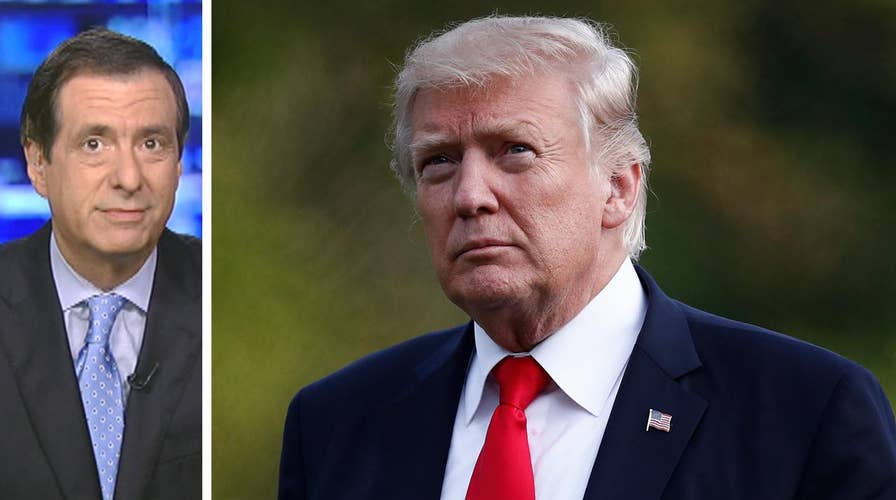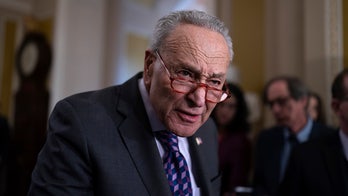Kurtz: Did the President just punt on DACA?
'MediaBuzz' host Howard Kurtz weighs in on President Trump's decision to end the Dreamers program in six months and how it was a compromise that largely satisfied no one
President Trump’s decision to end the Dreamers program in six months was a compromise that largely satisfied no one.
I can’t think of another issue this year on which the mainstream media have been so fully and unapologetically aligned against Trump and in favor of preserving an Obama program. The climate change agreement is a close second, but that is more abstract when compared to 800,000 young immigrants who were brought here illegally by their parents and have become integrated into American society.
If some journalists thought Trump might leave the program alone, they were dreaming. He promised to end it during the campaign.
At the same time, the initiative enjoys wide public support, given that the kids in question had no say about being brought to America, and such leading Republicans as Paul Ryan and Orrin Hatch are asking that it be preserved, along with major business and tech leaders.
The press has been playing up the plight of individual dreamers: those with stellar jobs, those with their own kids, those who aided in the Houston flooding rescues (including one who died).
That’s a legitimate part of the story, but also a sure-fire way of creating sympathy for those who would be sent home.
The president, in having Jeff Sessions make yesterday’s announcement, clearly wanted to limit what he knew would be a backlash against him.
And Trump seems to have been genuinely conflicted. After all, he told Fox News in 2011: "You have people in this country for 20 years: They’ve done a great job, they’ve done wonderfully, they’ve gone to school, they’ve gotten good marks, they’re productive. Now we’re supposed to send them out of the country? I don’t believe in that." As recently as Friday, the president said that "we think the dreamers are terrific."
This ambivalence was also reflected in a New York Times report: "Mr. Trump, exasperated, asked his aides for ‘a way out’ of a dilemma he created by promising to roll back the program as a presidential candidate, according to two people familiar with the exchange."
Sessions, a leading anti-illegal immigration voice since he was an Alabama senator, said the so-called DACA program is being "rescinded" on constitutional grounds. He took no questions from reporters. The administration was responding to a lawsuit filed by numerous state attorneys general.
What most of the media have minimized— and what Sessions stressed yesterday--is that the uproar over what Barack Obama did during the 2012 campaign was largely rooted in the unilateral nature of his decision. Obama shielded the dreamers from deportation by executive order because he couldn’t get a bill through Congress, and even he said it was temporary. That made the program vulnerable to being reversed by his successor.
Many pundits portray the six-month delay as Trump punting the decision to the Hill. And yet the administration is immediately halting any new applications.
Politico, which broke news of the decision over the weekend, cited a "senior White House aide' as saying that if Republican lawmakers fail to act, "he doesn’t expect Trump to follow through on terminating DACA." Politico casts this as setting up a potential battle between the president and Steve Bannon, who is now back at Breitbart and remains an influential voice.
In this view, Trump pleases his base with the Sessions announcement but nothing actually ends up happening.
While Republicans are divided, the Democrats are ratcheting up the pressure, with Nancy Pelosi saying Trump was ready to "break the hearts and offend the morals of all who believe in justice and human dignity."
The notion that Congress, which hasn’t been able to agree on much of anything, will rescue the program over the next six months may be wishful thinking.
In a rational system, the president and Congress would be able to tie the debate over people brought here illegally as kids to a broader approach on stemming the overall tide and Trump’s proposed border wall. But Washington hasn't worked that way for a very long time.





